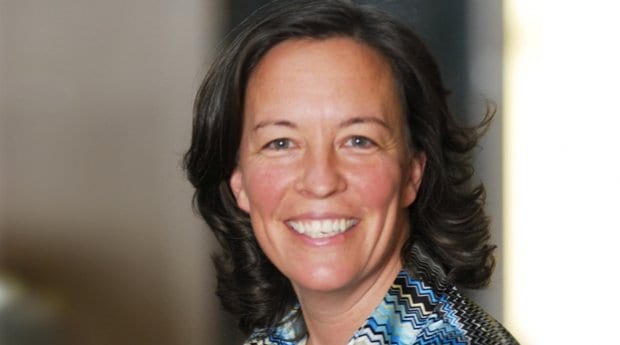If it weren’t for a case about old age security benefits for same-sex couples, Cynthia Petersen may still be leading the quiet life of an academic.
She was a professor at University of Ottawa’s law school in 1994 when John Fisher, then the executive director of Egale, asked her to represent the LGBT-advocacy organization as intervener in the Supreme Court of Canada. The case, Egan v Canada, dealt with the government’s refusal to grant members of a same-sex couple the spousal allowance under old age security, as the definition of spouse only included heterosexual couples.
Petersen was hesitant to take the case. To start, she hadn’t actually taken her bar exam — she didn’t need to take it to teach. And most lawyers don’t argue their first case in front of Supreme Court justices. “At the time, [Egale] had more confidence in me than I had in myself,” she says.
Although the Supreme Court dismissed the appeal, the justices set a groundbreaking precedent: that sexual orientation is analogous to race, sex and religion and therefore merits the same protection from discrimination as the other grounds listed in the Canadian Charter of Rights and Freedoms.
The case launched Petersen’s career. She caught the constitutional litigation bug, and has since made a significant contribution to the legal rights of the LGBT community, having represented interveners in some of the most high profile cases in the battle for same-sex equality. This is why Egale is honouring her with the 2014 LGBT leadership award at its annual gala celebration Sept 12.
In a press release about the award, Petersen is described as fighting tirelessly for the rights of LGBT people. Helen Kennedy, current executive director of Egale, was unavailable for comment on this story.
After representing Egale in Egan v. Canada, Petersen moved into private practice, eventually landing with Sack Goldblatt Mitchell, a firm that specializes in labour law, criminal law and civil litigation. She’s represented interveners in landmark cases like Halpern v Canada at the Court of Appeal for Ontario. That case effectively legalized same-sex marriage in Ontario, paving the way for it to be legalized nationwide.
Even she is surprised by how rapidly legal rights for lesbian, gay and bisexual people have changed over the last 20 years. “I think everybody knows there is still homophobia and issues that need to be addressed, but the laws have changed dramatically and comprehensively,” she says. “I’m not sure I could have predicted it.”
Peteresen recognizes how lucky she has been in finding cases that reflect her own advocacy work in LGBT issues. While working on Egan v Canada, for example, she felt some pressure to argue that sexual orientation is an analogous ground under the Charter because of scientific evidence that people are born either gay or straight. In the United States, similar cases were lost because the court decided that sexual orientation is mutable – they think people can choose their sexual orientation.
Though she acknowledges that there is a debate within the LGBT community over whether it is immutable or not, she feels, legally speaking, that taking a side is an “impoverished” way of looking at equality.
“If I converted to Judaism tomorrow and lost a job because I’m Jewish, I should still be protected,” she says. “It shouldn’t matter if it’s immutable or not.”
Recently, Peteresen has spent a great deal of time working on gender expression cases. “I think there is still some litigation to be done on behalf of the trans community to improve protections for them legislatively and also to enforce them,” she says. Most of the cases that she has worked on have settled out of court, which means, as of yet, they have set no legal precedents that other lawyers can cite. Petersen suspects this will change in the years to come.
However, on Sept 12 she’ll be focusing on something else — celebrating her LGBT leadership award with her friends and family.


 Why you can trust Xtra
Why you can trust Xtra


